Time flies. We are already well into February. The weather has been a mix – some dull and snowy times, but a lot of sun. And the days are racing to get longer.
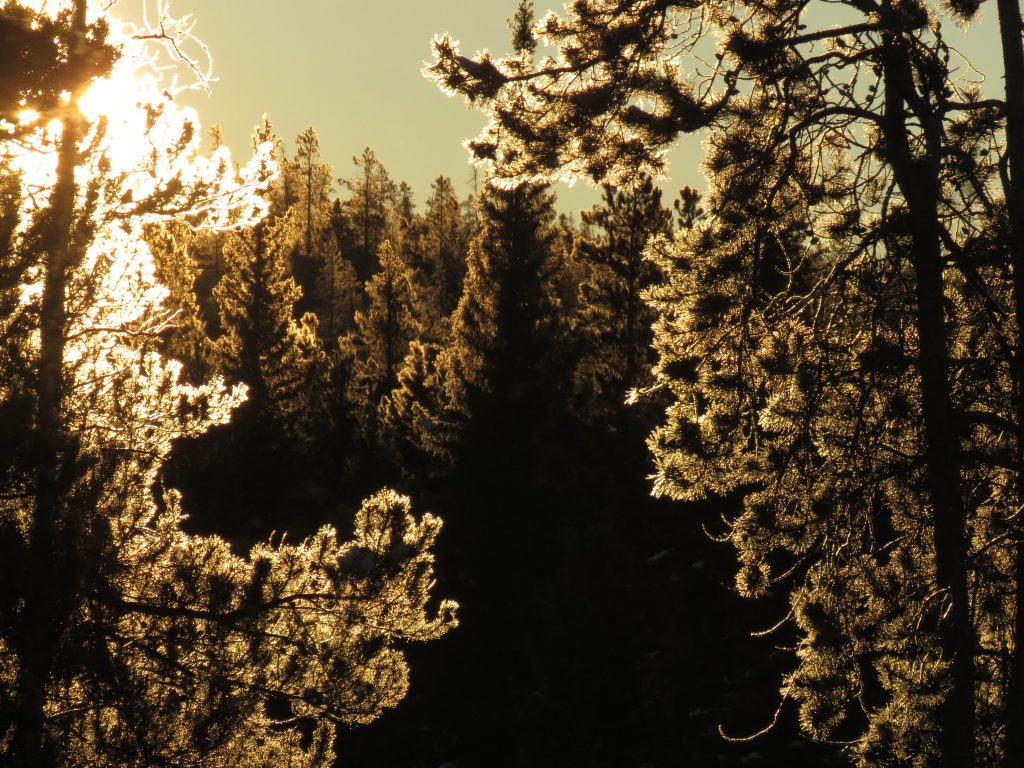
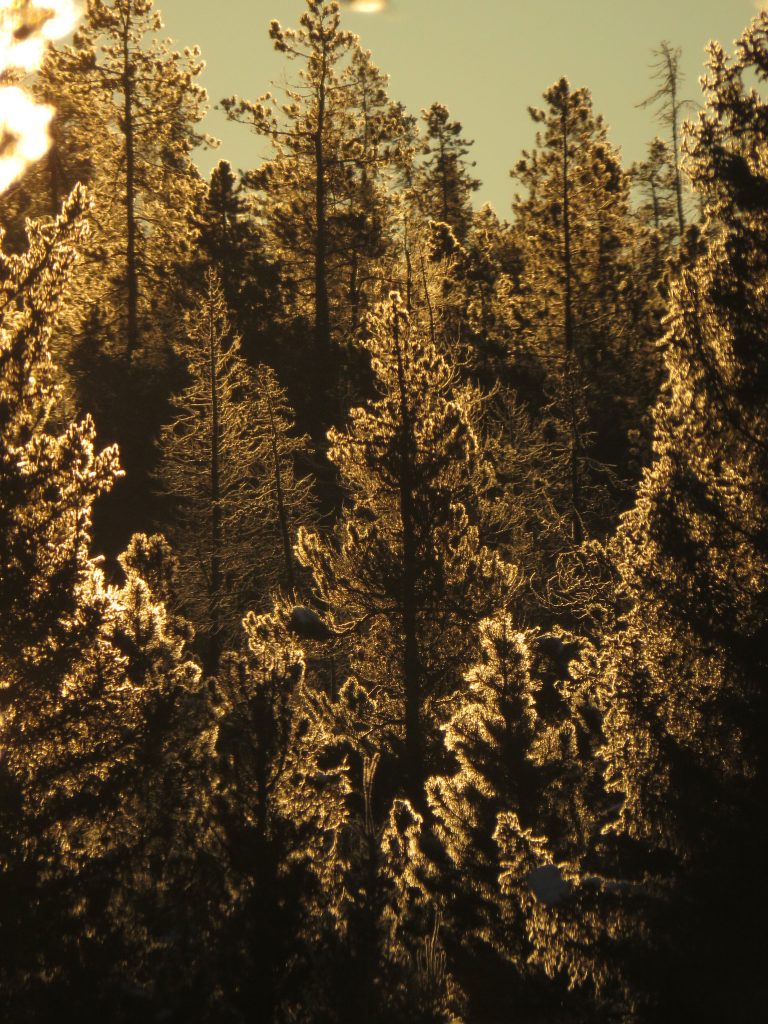
Already, by the fourth of February, the sun was flying high over Finger Peak.
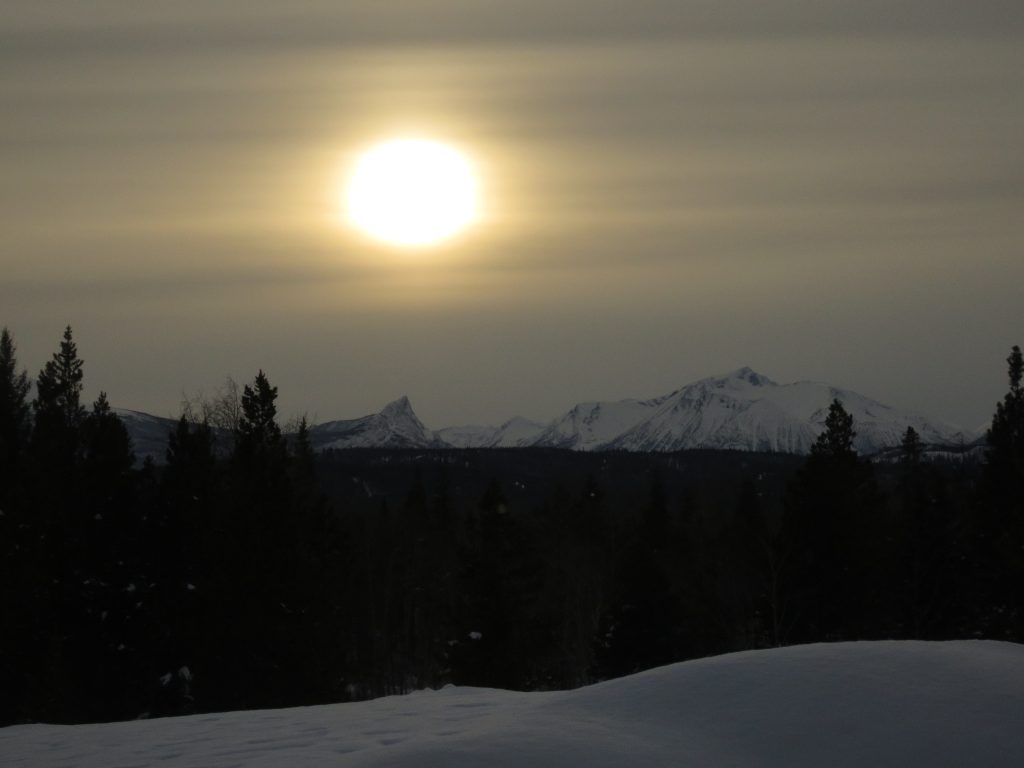
It snowed enough to need plowing again. Bigger machines have helped with the main part of our road (which is now as smooth as a highway!)
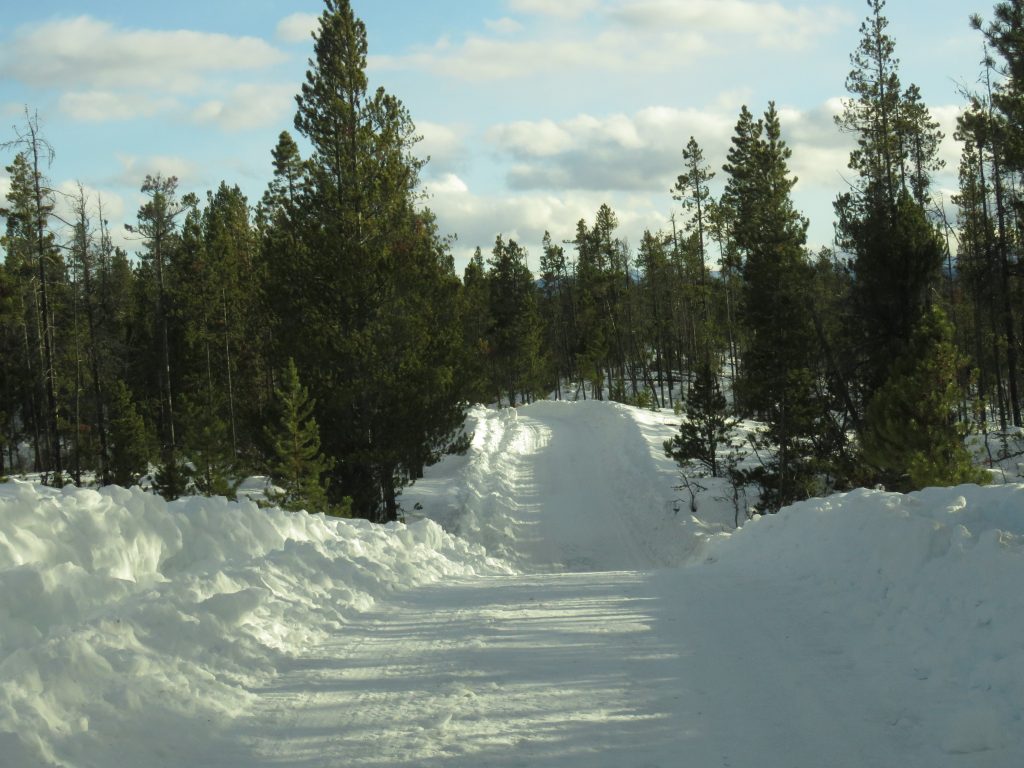
but I did my yard and most of my private kilometre with my ATV. I have moved a lot of snow with that little toy this year.
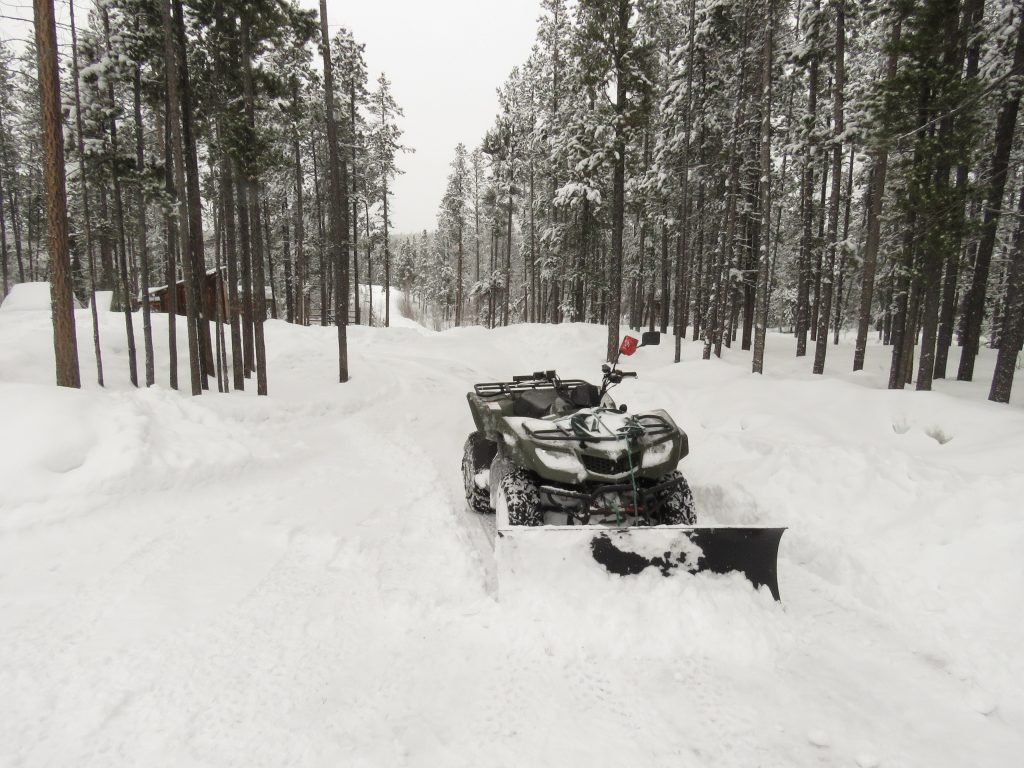
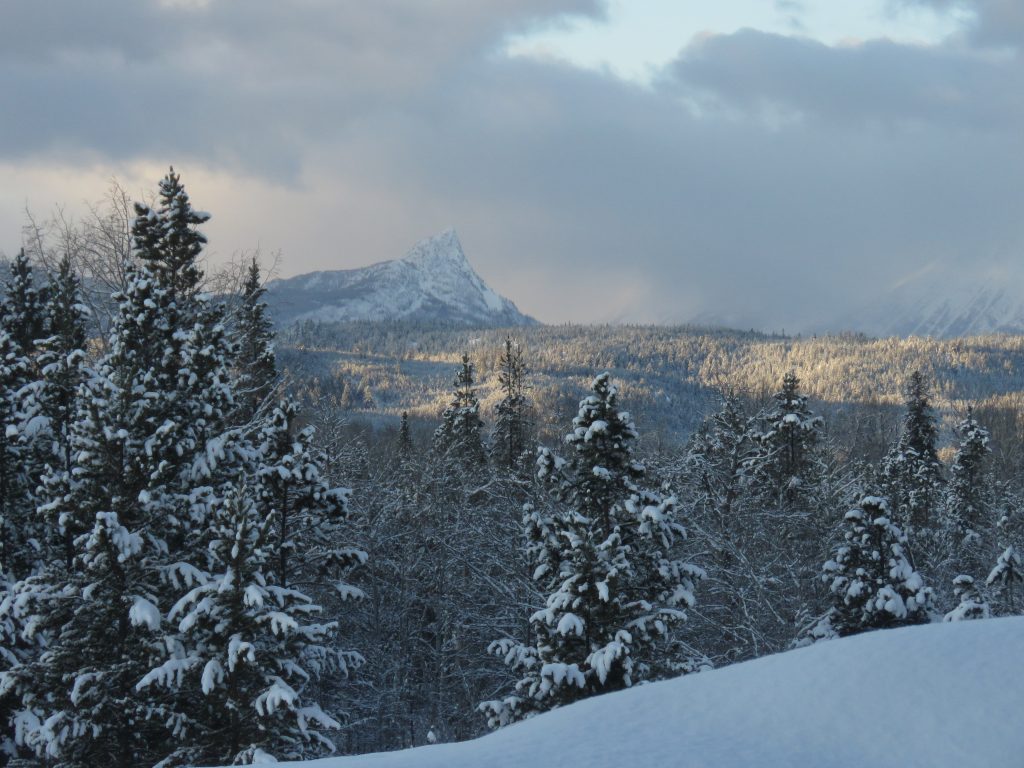
The birds flock to the feeders when fresh snow falls, but when it is pleasant, they are almost blasé about the food.
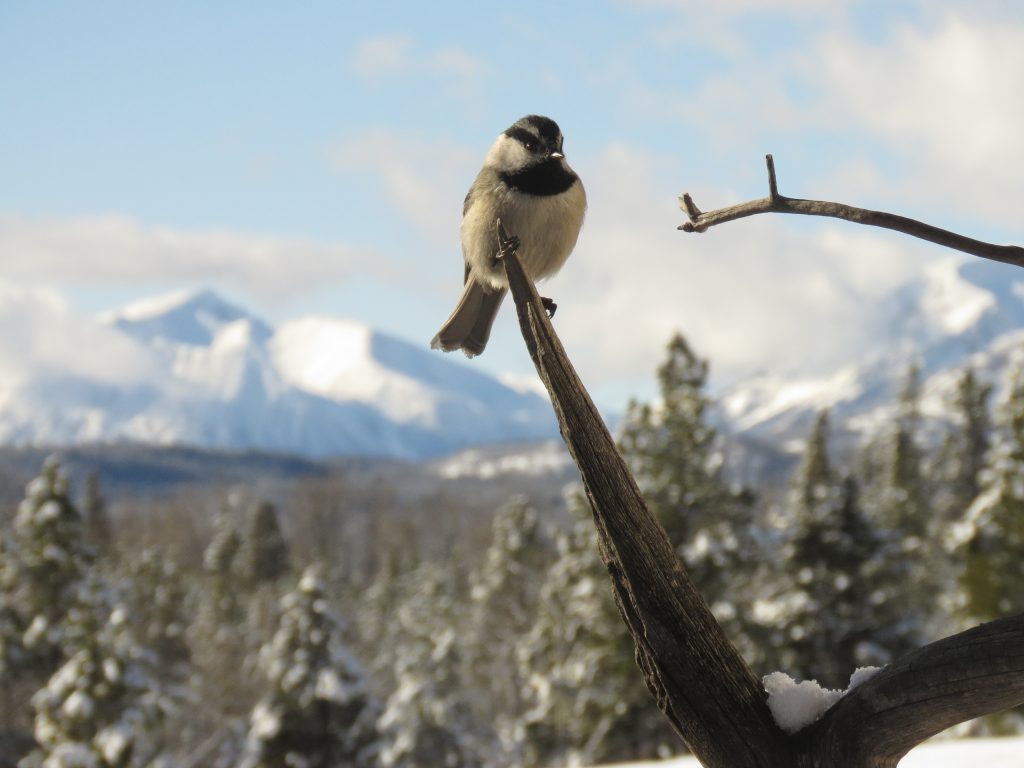
A few days more into February, and the sun cleared Middle Mountain.
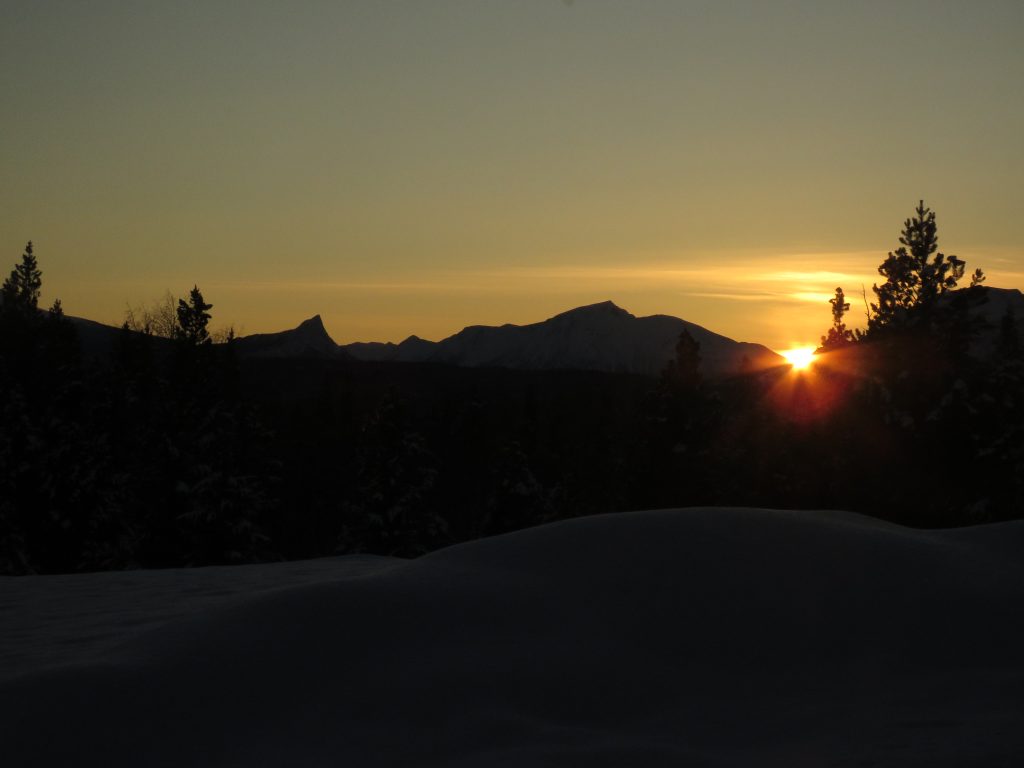
Most of BC has had more snow than usual this year (although two areas, apparently, have had less). The burned areas at Downtown Kleena Kleene are starkly obvious. Finger Peak is sharper from this angle.
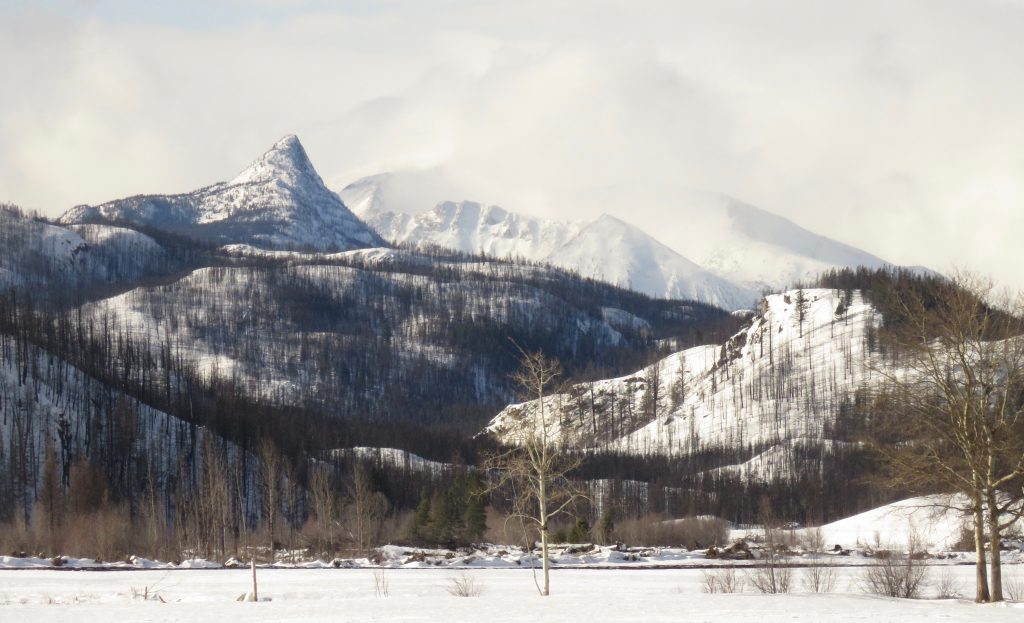
The afternoon temperatures are often above freezing and where the sun is uninhibited, the highway is sloppy. Nogwon’s burned nakedness is also very noticeable.
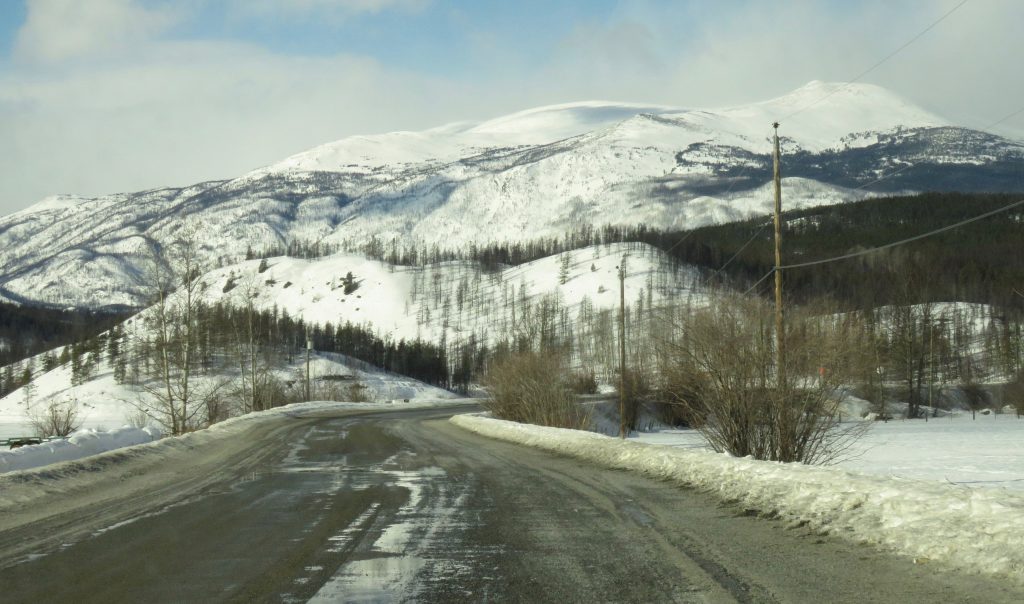
I went to the store at Nimpo Lake, 40 minutes west, which is the nearest place to gas up. I was amused to see the notice about having to be 19 to buy tobacco and vaping products pasted in front of the bear sprays. Is this what people are inhaling now?
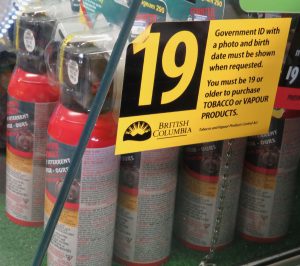
Search and Rescue Helicopter Safety
Every Year, Search and Rescue members have a Helicopter safety talk. Readers of Captured By Fire will remember that I mentioned our local helicopter outfit and the pilot Mike King. White Saddle Air is located at the south end of Bluff Lake, a bit over an hour’s drive from my place. Bluff Lake road is known to be treacherous, particularly when covered in ice.
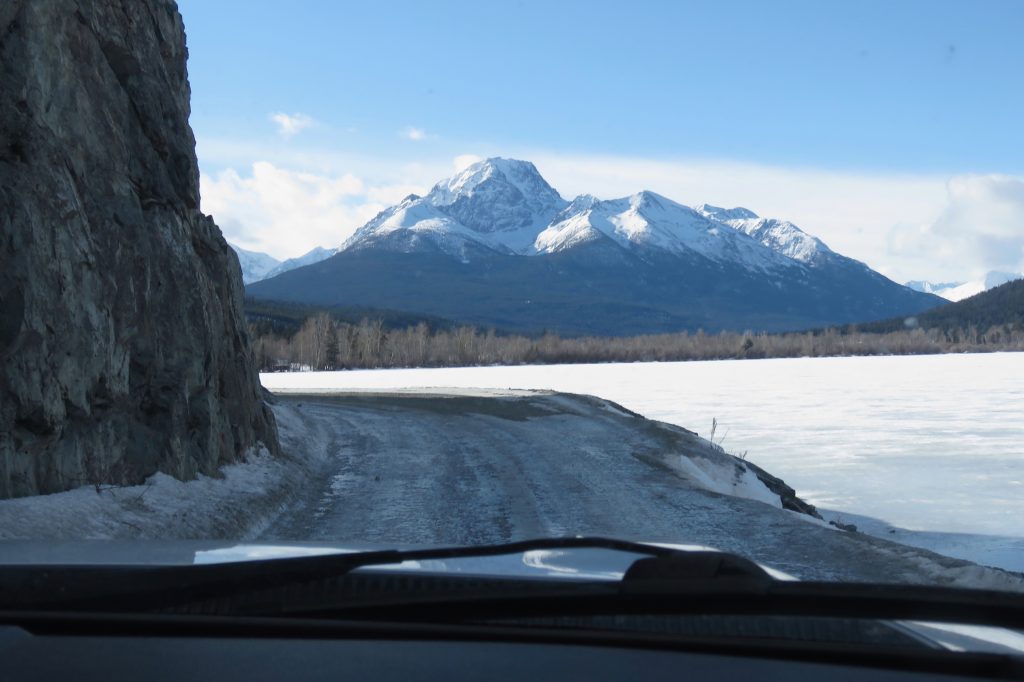
Mike had a new helicopter that he was very proud of. We started our lecture in the hangar.
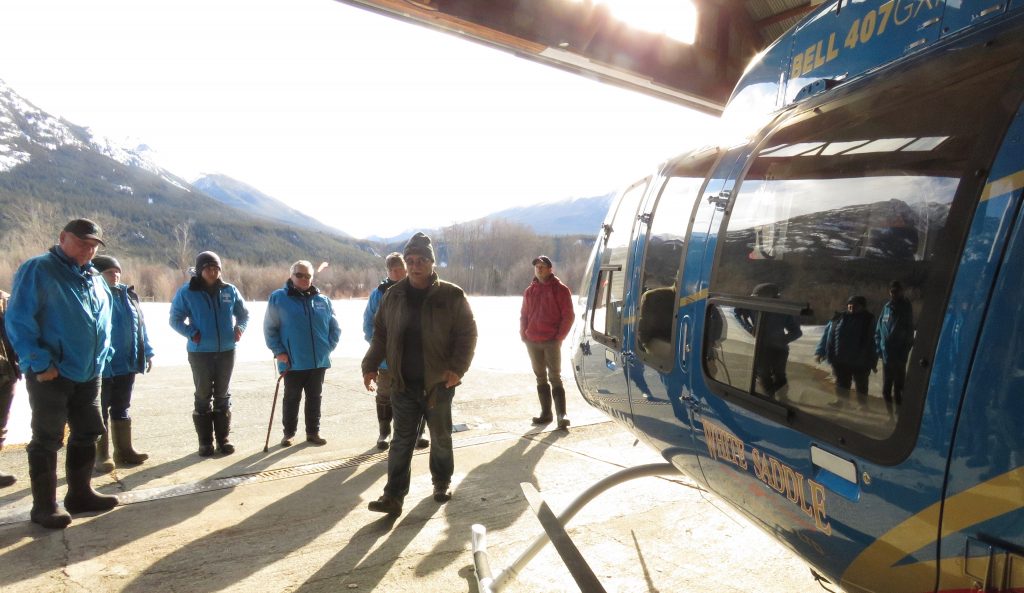
Many people were practicing a hover exit. This involves climbing out of the helicopter while it is not touching the ground. I could probably have managed it somehow, but it has to be done very slowly as when a person’s weight is released, it is difficult to keep the aircraft balanced. My knees are so bad I wasn’t sure if I could get to the ground gracefully, so I just took pictures. Hover exits are not done very often so I expect my lack of qualification in this regard won’t be a big loss. The door has to be taken off for this exercise – also people are not allowed to wear hats or anything else that might blow into the machinery.
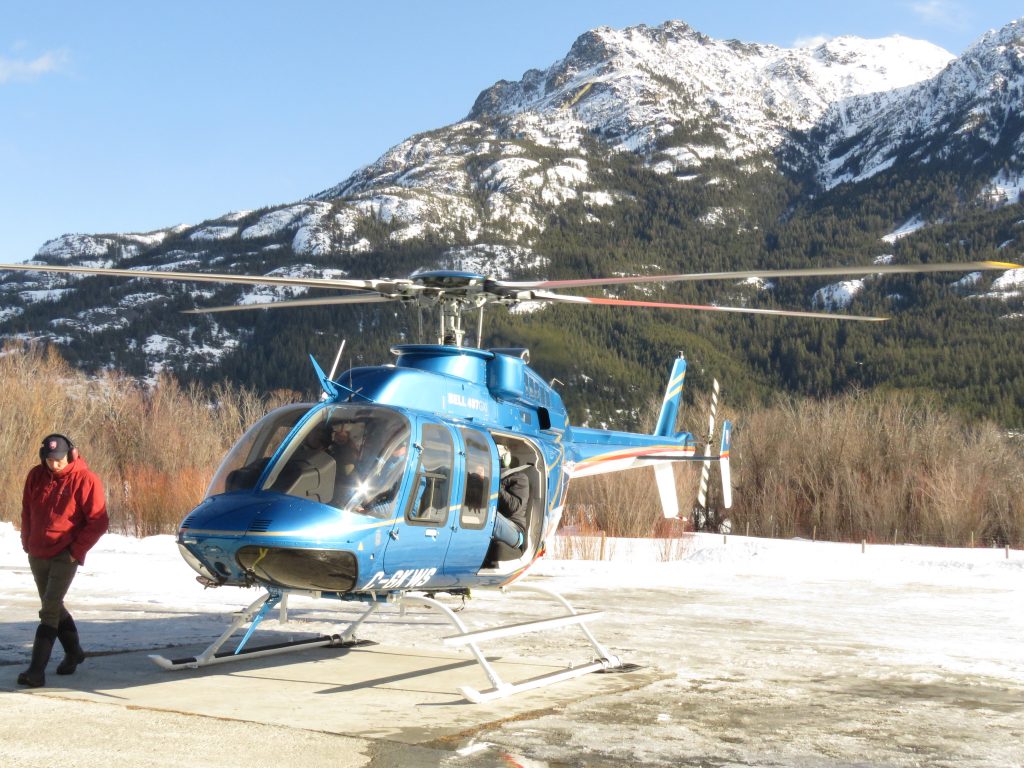
Mike did not take people very far, just over the fence into a meadow. There was a bit of wind but not excessive, still, it was difficult to hover steadily. The SAR member had to stand on the step, hanging onto the seatbelt inside the helicopter, and wait until the ground came close enough.
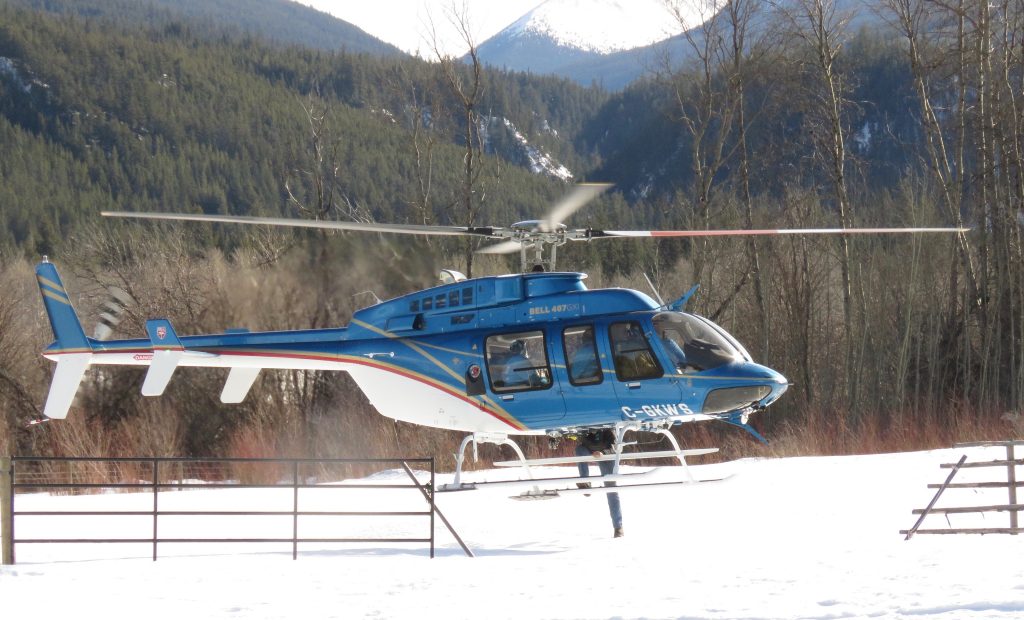
Then he had to crouch and wait for the next person. Each trip took 3 people, with a fourth in the passenger seat to co-ordinate people and gear getting out.
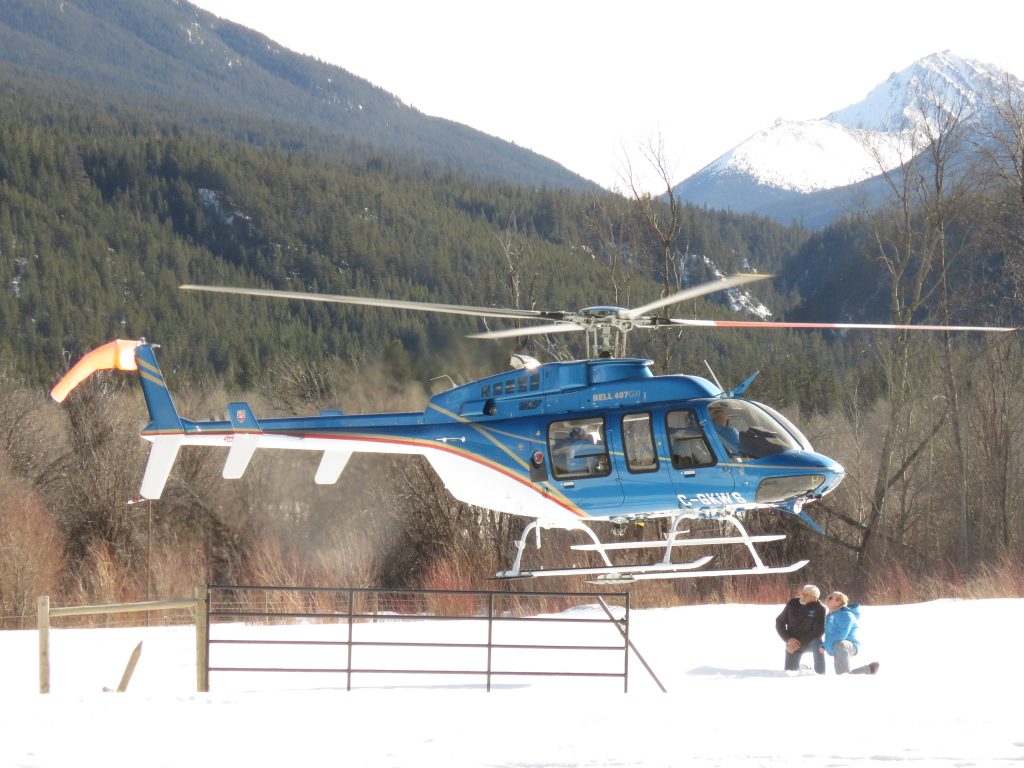
Mike had been hired for x amount of time and he said he would be able to give some of us a quick helicopter ride.
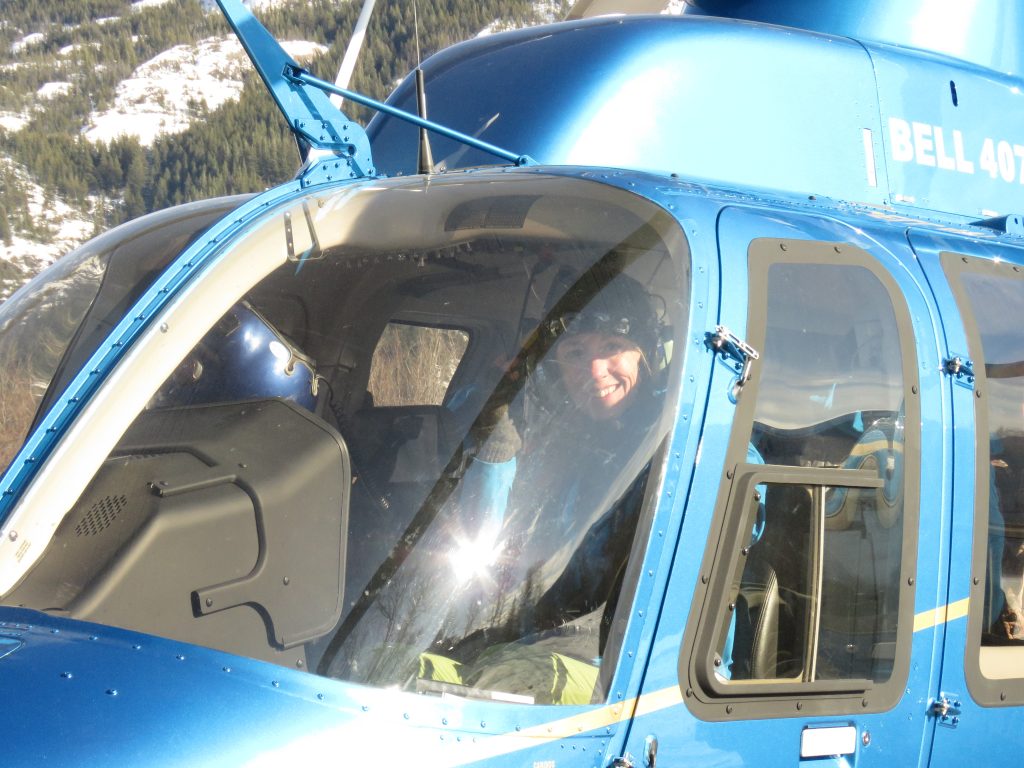
Jade, my neighbour, got a front seat – but her camera battery ran out. I got a middle back seat so was unable to take meaningful photos. It was a fun end to a spectacular day.
Painting.
My creative project for this winter has been painting rather than writing. Apart from book illustrations, it is something I have not done for many years. At first I scribbled down what I could see out of the window. Not what I really wanted to achieve, but it was fun playing with the watercolour and pastel mix.
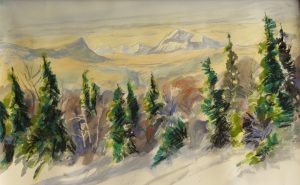
As often as not, this same view was very moody.
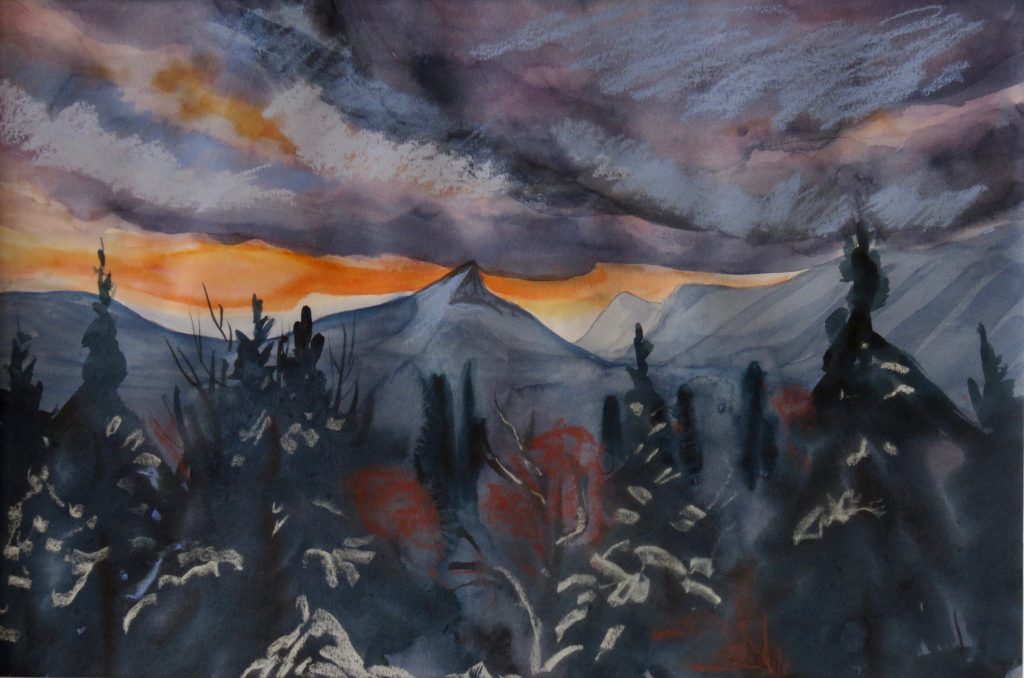
Stuck in the gloom of winter, I started looking at pictures of mountain flowers. Here is Perkins Peak based on one of the trips up there. Perkins Peak is a full-sized water colour sheet, 22″ by 30″. The previous two paintings are half sheets.
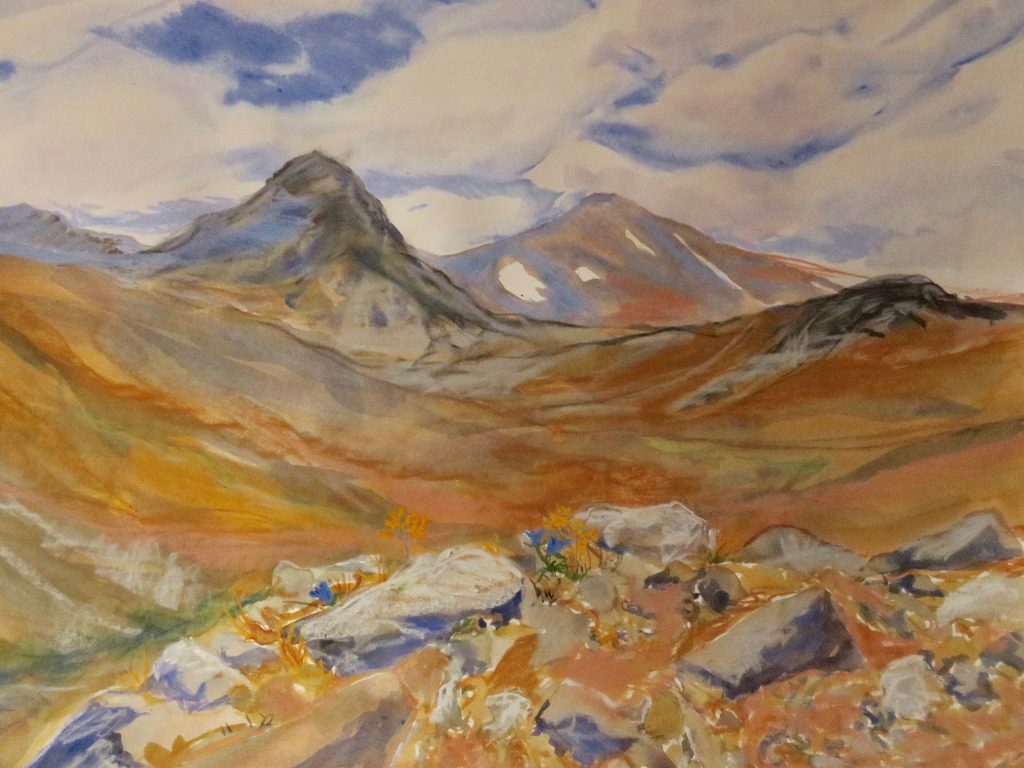
Next, Nuk Tessli. Mountain avens on the north ridge. This is a quarter sheet.
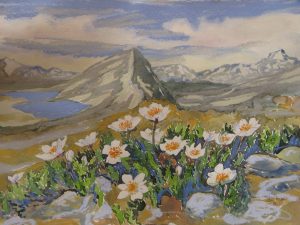
After several experiments, I decided to go for a triptych based on my visits to the Bella Coola Valley. It is composed of three full watercolour sheets. It took about 2 weeks to complete.
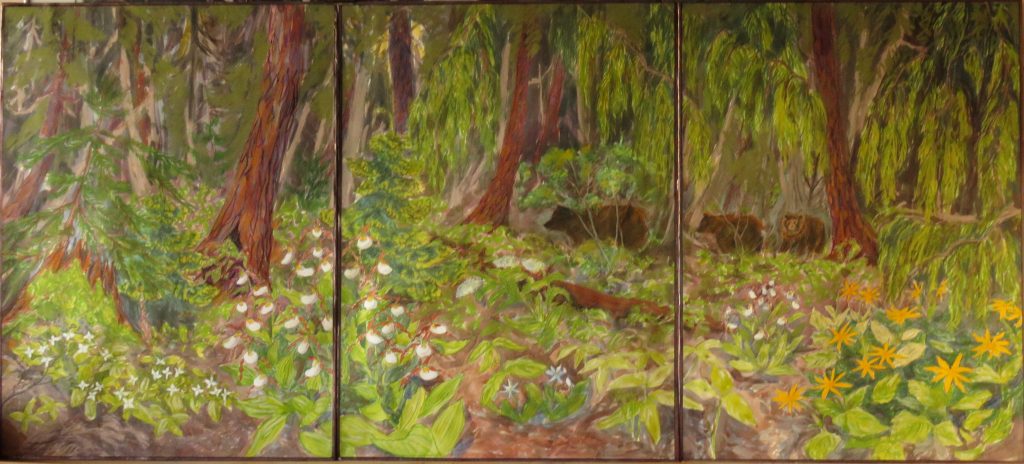
This shows the size. (The protective plastic spoils it.)
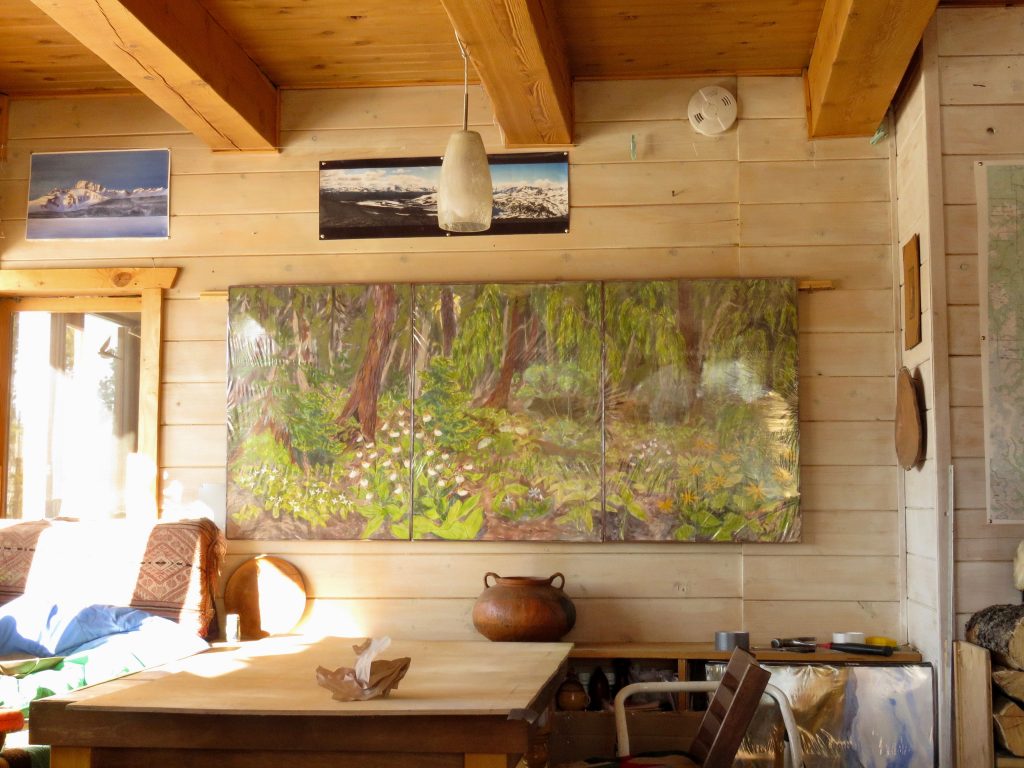
Wildlife.
One evening at dusk, I glimpsed this guy on my pond.
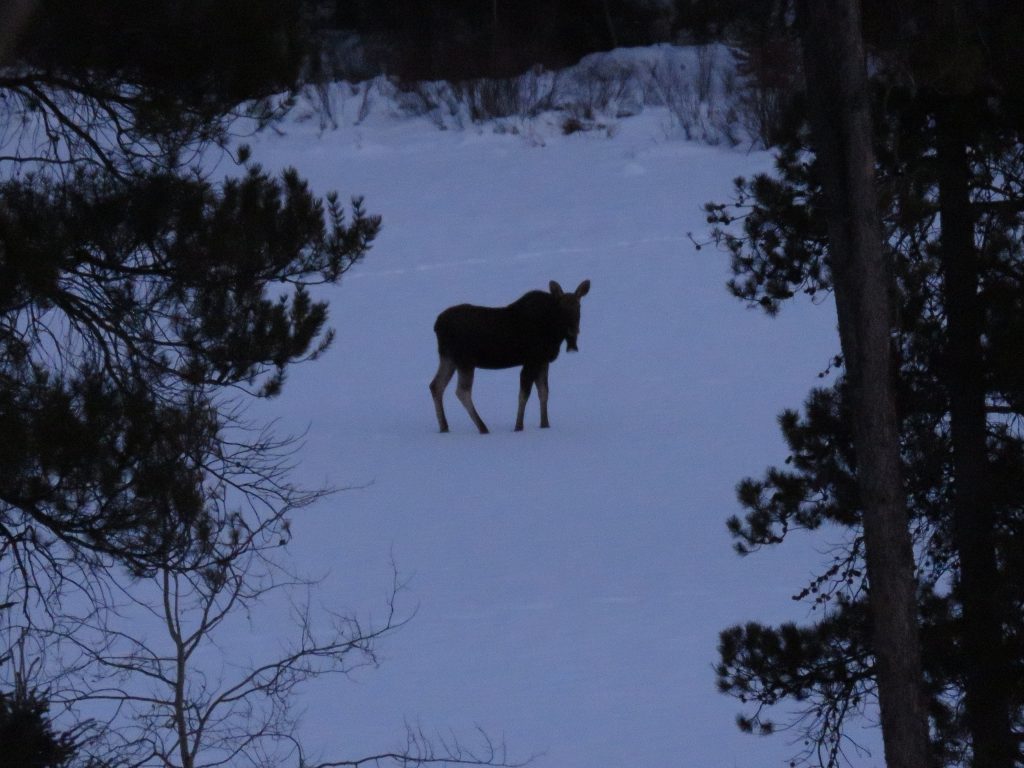
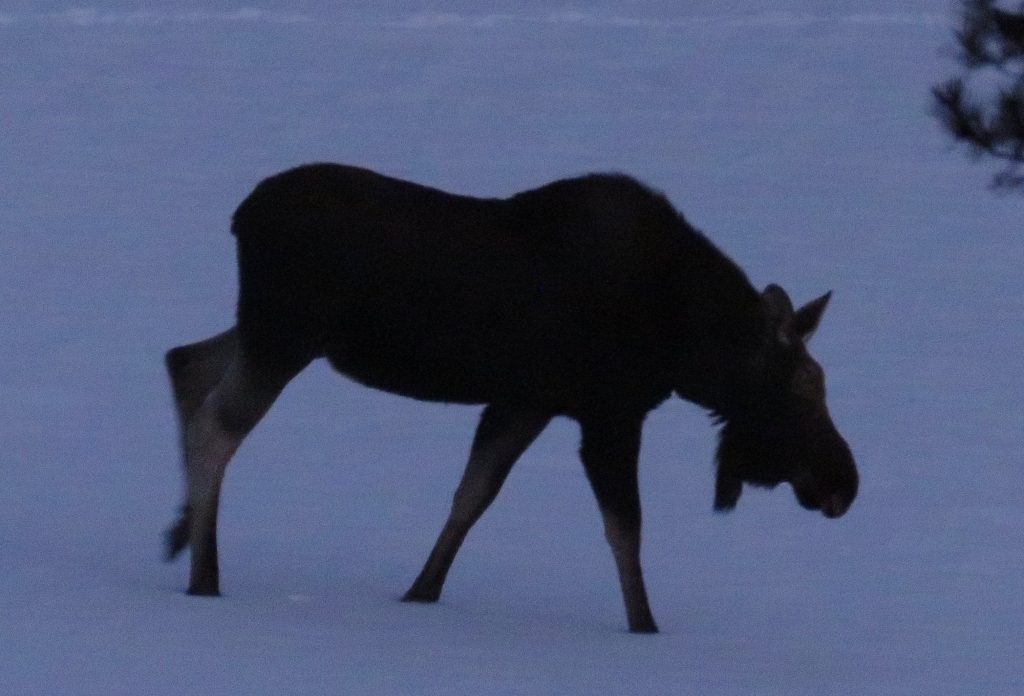
I’d seen tracks – quite a few moose seem to be about just now. They don’t move too far when the snow is deep.
Another time, I saw what appeared to be a squirrel poking around beneath the trees where the chickadees feed. But it’s back end looked like a hamster. What kind of animal could this be?
It was in fact a squirrel. Somewhere along the way, the poor thing has lost its tail. I call him Bob.
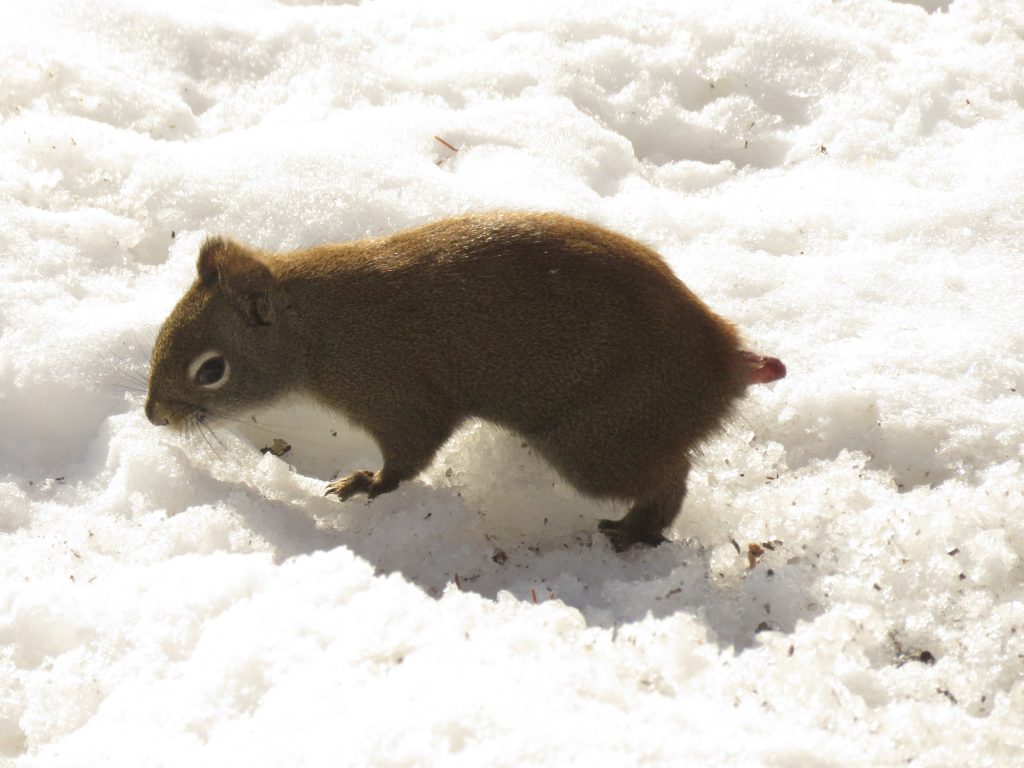
At first, he did not come onto the feeder like the other squirrel does and I wondered if he could climb. I met another bob-tailed squirrel once, but he had a hairy stump. He did not bound like other squirrels, but ran flat out. However, eventually “Bob” came onto the feeder. Was it a predator who mangled his tail? Or did it freeze during our cold spell?
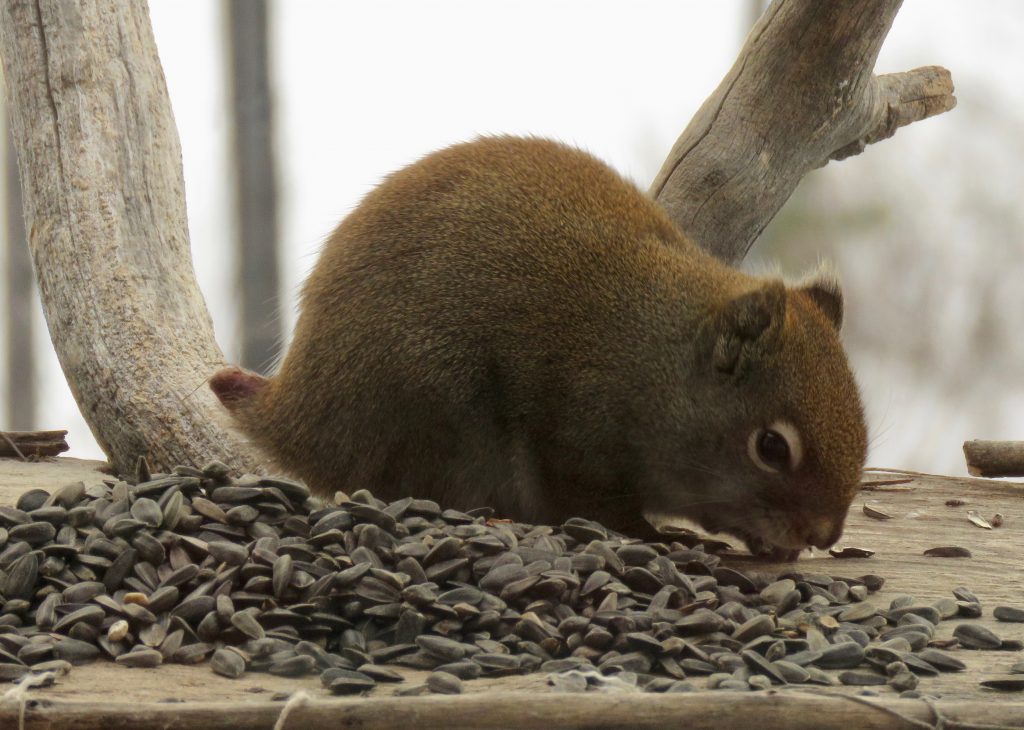
The big wildlife issue, however, is the wolf slaughter. “Saving the Caribou” is touted as the reason, but in fact it is the ranchers who are making the most noise. It is true that during the last winter especially, and in all the years since the 2017 fire, livestock predation has risen. My neighbours are ranchers, and I am delighted to be able to eat organic range beef – it is the nearest thing to healthy wild meat you can get. And before anyone screams – “Why aren’t you a vegetarian?” let me tell you that I have multiple food sensitivities including legumes and grains. So where am I going to get protein if I can’t eat beans? Besides, the climate in this area means that almost no other type of food can be produced here. Note the figures in this article from the Kelowna Daily Courier. 0.0101% were the wolf kills for ranchers in 2013. Admittedly they may have risen due to the fires, but they are still low. This is wild country. Ranchers have to expect predation.
The BC government has endorsed the wolf cull – this article in the Williams Lake Tribune. The gun store in town announced a wolf-whacking competition.
The Williams Lake Tribune, like most small town newspapers now, is owned by the same company called Black Press. They are definitely red-neck in flavour.
There are many wolf support organizations out there such as Wolf Awareness. There was an interesting study done in Yellowstone about the reintroduced wolves and how they affected all the other wildlife and even the character of the river. Here’s a preview: How Wolves Change Rivers. Then there are scientist who debunk this “myth”.
All this tells me, as with most environmental issues, is that people don’t really know. They are going to quote figures that kowtow to their boss’s point of view. Nature should be supported, not messed around with.
It is a waste of time and money to shoot wolves from the air. I have seen no wolf tracks this winter – they will regulate themselves within a year or two. Sure, allow the snowmobilers to vent their blood lust- they will not kill many as it is extremely difficult to find them when on the ground, particularly when they are driving noisy machines.
